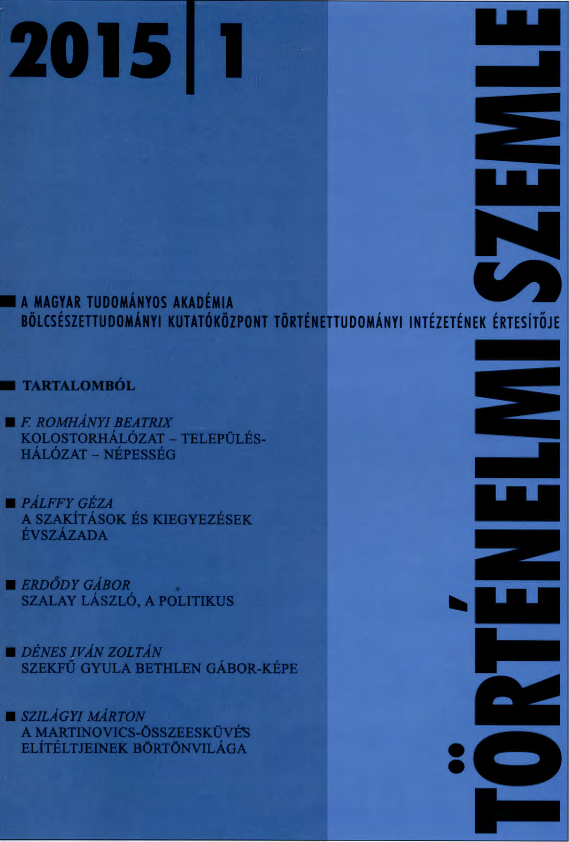A nemzetközi felügyelet alatt élő lengyel városállamok az 1939 előtti Európában: Krakkó és Danzig szabad városok
Polish City-states under International Supervision in Pre-1939 Europe: Cracow and Danzig as Free Cities
Author(s): Iván HalászSubject(s): Geography, Regional studies, Political history, Interwar Period (1920 - 1939), Ethnic Minorities Studies, Socio-Economic Research
Published by: Magyar Tudományos Akadémia Bölcsészettudományi Kutatóközpont Történettudományi Intézet
Keywords: Poland; free city; international supervision; pre-1939 Europe; Cracow; Danzig;
Summary/Abstract: The study deals with two areas of „free city” status which emerged on Polish territory – the Republic of Cracow which existed between 1815 and 1846, and the Free City of Danzig which subsisted from 1919 and 1939. Both entities came to existence through the will of the great powers which emerged victorious from previous wars – the first at the Congress of Vienna, the second as part of the Versailles peace system. While officially both areas were regarded as „free state” or „free city”, in practice both manifested a peculiar mixture of local self-government and international supervision. As a matter of fact, in questions of truly great importance it was almost the second factor that prevailed. The differences in the features of international supervision mainly sprang from differences between the two periods. Namely, in the first half of the 19th century there existed no international organisation of universal extension and general competence assumed in the interwar period by the League of Nations. Consequently, the interests of great powers were asserted directly in Cracow through the agency of the personal representatives of Russia, Austria and Prussia. In the interwar period, on the other hand, international control took a more sophisticated form through the mediation of the League of Nations. The political and constitutional development of both Cracow and Danzig was fairly dynamic in the period investigated here. Yet there was an important difference: while in the Republic of Cracow the room of manoeuvre for the local political bodies decreased and the influence of the great powers increased constantly, in the Free State of Danzig, where such a development would have been highly justified, the process went in fact the other direction. Here the local representative of the League of Nations and his apparatus faced ever increasing difficulties from the 1930s in dealing with the local Nazis who, while enjoying the external support of Nazi Germany, acquired political legitimacy through popular backing gained in the course of free elections. It is thus far from surprising that Danzig became one of the first theaters of the struggles which shortly evolved into WW2. The study does not focus exclusively on the political developments, however; it also tries to picture the international legal status of the two entities, as well as their constitutional structures, touching upon such aspects as the workings of local self-government, the legal status of ethnic minorities, the problem of customs duties, the organisation of postal services, or the problem of currencies used.
Journal: Történelmi Szemle
- Issue Year: 2015
- Issue No: 01
- Page Range: 131-153
- Page Count: 23
- Language: Hungarian

